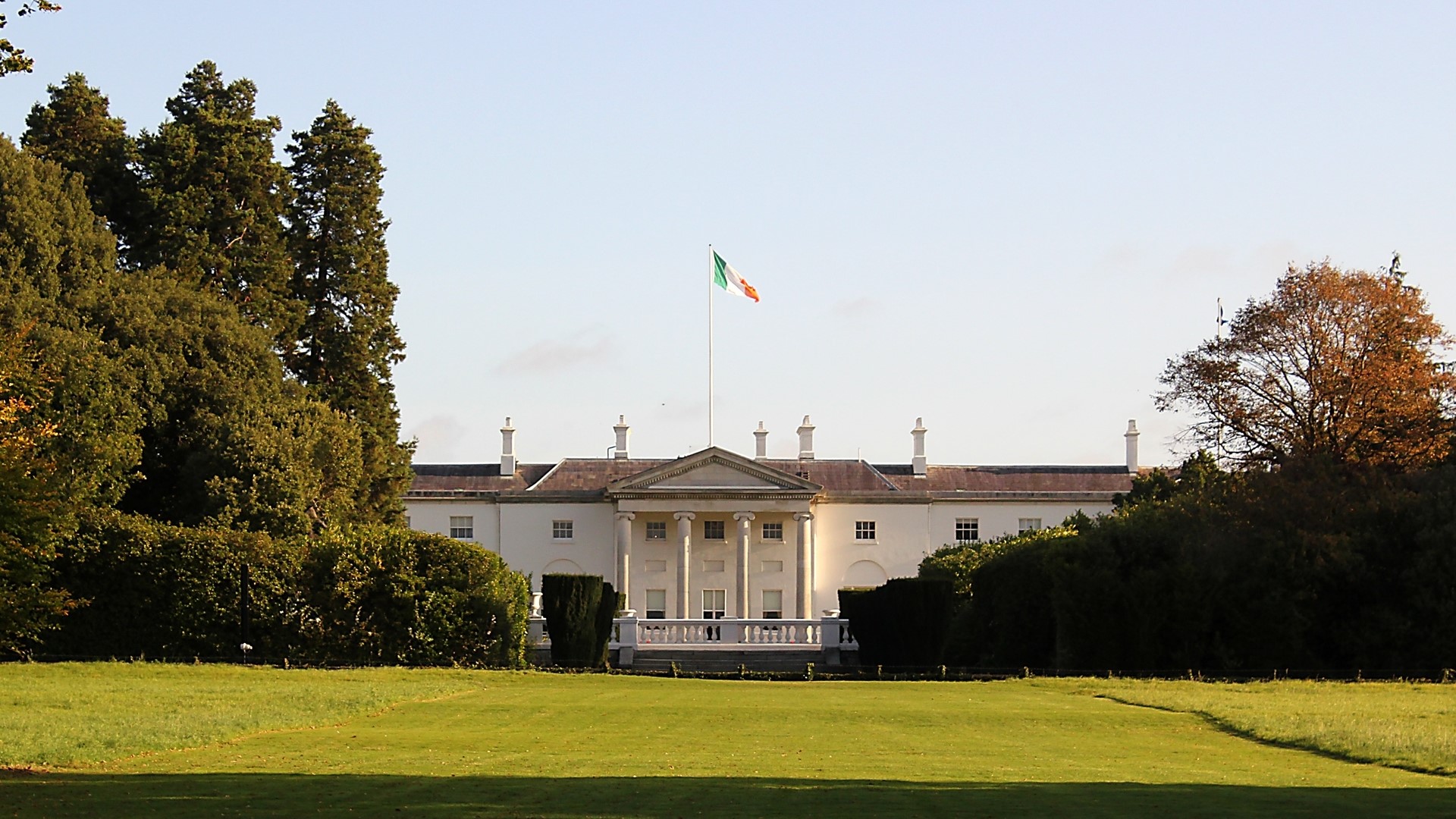Few people would argue against trying to raise the standards of living in a country. Economic growth and prosperity are clearly a positive for society that experiences it. Consider the case of Hungary. In the early 1990s, on a PPP-adjusted per capita GDP basis, the average Hungarian income was just over $18,200. Today it is over $40,500. Hungary’s economic growth in this period has allowed it to overtake Greece, which went from having a higher average income than Hungary in the early 1990s—around $26,800—to a lower average income of around $36,900 today. There are few Hungarians that would not celebrate these developments.
Yet there are reasons to think that when economic growth takes place without guardrails, it can produce negative results. Over the past 40 years or so, many of the developed Western countries have seen their economies grow extremely wealthy and yet at the same time they appear to be experiencing severe social problems and political instability. This is especially apparent in Europe where, despite living standards having risen substantially over the past two decades, much of the continent appears dysfunctional. This raises two important questions. First, does economic growth really capture rising living standards in broader terms? Second, might economic growth when left to itself cause damage to the rest of the social fabric?
Ireland as a Liberal Experiment
This has been the theme of recent books in political philosophy such as Patrick Deneen’s Why Liberalism Failed. Deneen and other ‘postliberal’ thinkers argue that liberal societies, despite producing substantial amounts of wealth, nevertheless tend to become extremely dysfunctional due to liberalism’s tendency to hollow out social relationships that fall outside of the state and the market. Liberalism tends to encourage self-actualization over more bonded relationships and this, in turn, produces an atomized society. This atomized society then undermines the social fabric that allows for liberal societies to produce wealth. Think, for example, of the collapse in marriage and childbearing in late liberal societies. The demographic problems that this causes are soon going to undermine the prosperity that makes liberal capitalist societies so appealing in the first place.
‘Liberal societies, despite producing substantial amounts of wealth, nevertheless tend to become extremely dysfunctional’
The problem has long been in quantifying these relationships. Intuitively, the issues that critics like Deneen raise seem plausible. But they are very hard to prove because they are so multifaceted. Yet because the critique touches on issues of economic development it seems perfectly reasonable that economists might ask for some sort of proof of these claims in the statistical manner that they are used to. In a recent study entitled ‘Economic and Social Conservativism: Natural Partners or Strange Bedfellows? Ireland: A Case Study ‘published with the Danube Institute, I have tried to quantify these intuitions for the first time. The goal is to try to see if we can show clearly that liberal capitalism, left to itself, will erode the social foundations on which it rests.
In physical sciences like chemistry and physics, the scientist can set up a laboratory experiment where they can test their hypotheses. In the laboratory everything is controlled by the scientist and so scientific results are generated easily. Sometimes, in social sciences like psychology, these experiments are also viable. But when discussing sweeping social changes such as the impact that economic and cultural developments have on an entire society there is simply no way to set up an experiment. Fortunately, sometimes these sorts of changes take place in such an aggressive and controlled manner that we can treat them as a ‘natural experiment’. We can then gather data from the period in which this natural experiment took place and examine what happened and the relationships between various phenomena.
For our purposes, Ireland over the past three decades turns out to be the perfect natural experiment. Since the early 1990s, Ireland has gone from being a relatively poor Western European country to being one of the wealthiest countries in the world. This enormous increase in wealth was mostly driven by foreign direct investment (FDI). In this same period, Irish culture and politics changed enormously. The country went from being a conservative and quite Catholic society to being a modern ‘progressive’ liberal country.
The Results
Intuitively, it appears on its face that the economic development and the liberalization of Irish politics and culture are related. In the study I test this by examining FDI flows by region. Different regions in Ireland—which are called ‘counties’—were impacted by FDI in different ways. Some counties in Ireland see up to 30 per cent of the working population employed in FDI-related industries, others see less than 10 per cent. These divergences allow us to see if there is a relationship between the percentage of the population employed by FDI-related industries and various social and political indicators. The results are striking.
The data shows a very strong negative correlation between the level of FDI-related employment and the religiosity of the population. This means that the more people there are who are being employed by the foreign companies in a region, the less people in that region identify as being Christian. This holds for both urban and rural regions. The data also shows a strong positive relationship between the amount of foreign company employment in a region and the tendency for that region to vote ‘yes’ in the gay marriage referendum that took place in Ireland in 2015, suggesting that FDI inflows have a strong impact on Irish political dynamics. Again, this finding held in both urban and rural areas.
These dynamics had knock-on effects. For example, when we look at religiosity by region, we find strong correlations between the percentage of the population that identify as Christian and drug offences. More religion tends to mean fewer drug offences. Political liberalization seems to have had particularly interesting effects. In Ireland in the past 15 years the political system has become extremely fragmented. It has gone from being a country with two large, dominant political parties to being one in which voters have fragmented into voting for much smaller parties—and even independent candidates—who then form rainbow coalitions. This dynamic tends to stifle democracy as no matter who people vote for, identical coalitions tend to form. When we examine the data, we see a strong relationship between the percentage of people in a region that voted ‘yes’ in the gay marriage referendum and the amount of political fragmentation that this region has seen over time. Liberal politics seems to shatter the dominance of large political organizations, encouraging people to vote for smaller, more isolated parties and candidates, which in turn leads to the proliferation of rainbow coalition formation—one that often allows the state to go into ‘autopilot mode’ and enact policies that are destabilizing and extremely unpopular, like uncontrolled migration. It could be argued from this that liberalism is inherently bad for democracy.
‘Even though Ireland has become a much wealthier country…it appears that the quality of life has fallen dramatically’
The broader trends in Ireland during this period have been very negative. In fact, no matter what non-economic measure we look at we find that it has deteriorated—often severely. From trough to peak, Ireland’s suicide rate rose 655 per cent in this period. The country’s homicide rate rose 609 per cent. Alcohol consumption per capita rose 128 per cent. Drug-related deaths rose 6,115 per cent and the fertility rate fell 58 per cent. Even though Ireland has become a much wealthier country, when many of the social statistics are examined, it appears that the quality of life has fallen dramatically. These are not minor increases of a few percentage points. They speak to a fundamentally different country that experiences six times more murders and suicides than it did only a generation or two ago. Economists and political commentators often associate rising GDP with rising living standards. But if this is true why are six times as many people taking their own lives or the lives of others?
Keeping Liberalism at Bay
These results should be of particular interest for a country like Hungary. We have already seen that Hungary’s living standards have increased enormously in recent years. Unlike Ireland, however, Hungary remains a culturally conservative country. Nevertheless, there is reason to think that this might change in the future—at least, if careful measures are not taken to ensure that it does not. Consider the fact that Hungary’s wealth levels today are roughly the same as Irish wealth levels in the mid-2000s. While Ireland in the mid-2000s was not as culturally conservative as it was in, say, the mid-1990s, it could not have been a progressive liberal society. This means that if Hungary continues to grow its economy, it may see social and political liberalism become dominant by the mid-2030s.
Yet there are actions that the country can take to ensure that this does not happen. First, the country can try to target ‘friendly’ or at least ‘neutral’ capital inflows. By this we mean FDI inflows that are not overtly politicized. We have seen many multinational companies try to use their leverage and influence to spread liberal political ideology in the past two decades. Hungary could look at the values of a company that wants to invest in the country and determine whether these fit with Hungarian values. If the company strongly insists on promoting these values, the investment might not be worth the potential long-term downsides related to the social and political impact of these values on Hungarian society.
Secondly, and relatedly, the country can lay down explicit rules that the companies must adhere to. It is often commented on that Western companies that try to spread their values in other Western countries are very cautious not to do this in countries where doing so is frowned upon or even banned, like in China or in the Gulf Monarchies. The Hungarian government could lay out guidance that companies must follow when they are operating in Hungary. This might apply not just to companies that invest in Hungary but even to companies that engage with the Hungarian consumer market.
‘Prime Minister Viktor Orbán once said that Hungary is an “illiberal democracy”. Perhaps what is needed to compliment Hungary’s illiberal democracy is an illiberal capitalism’
Finally, there is a strong case for Hungary to try to build out their own high-prestige social networks. Foreign companies tend to promote social networking in circles that align with their values. So, a person who starts to work for a foreign company might find themselves attending events run by that company and its partners to seek out networking opportunities. This can result in the company’s values being spread across the society. The Hungarian government or an institution aligned with Hungarian values—like the MCC—might try to gain influence over these social networks. This could be done by partnering with the foreign companies and doing joint networking ventures that are in line with Hungarian cultural values.
There is no necessary reason why a country cannot get wealthy and still maintain its values intact. But there is strong evidence to suggest that focusing on economic growth alone while ignoring the impact that rapid economic development—especially development driven by foreign companies—has on the social fabric is extremely dangerous. A balanced approach is required that tries to channel the positive energies of economic development while rejecting the forces that it unleashes that can have negative social effects. Hungary is probably the best placed country in the Western world to try to undertake such a strategy. Prime Minister Viktor Orbán once said that Hungary is an ‘illiberal democracy’. Perhaps what is needed to compliment Hungary’s illiberal democracy is an illiberal capitalism.
Related articles:








